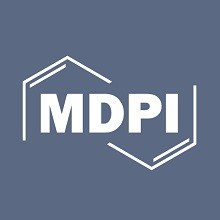
دانلود مقاله کیفیت خواب، بی خوابی، اضطراب، خستگی، استرس، حافظه و مقابله فعال
چکیده
مقدمه
روش ها
نتایج
بحث
نتیجه گیری
منابع
Abstract
Introduction
Materials and Methods
Results
Discussion
Conclusions
References
چکیده
مقدمه: مطالعه حاضر با هدف بررسی تأثیر همهگیری ویروس کرونا (COVID-19) بر کیفیت خواب، بیخوابی، اضطراب، استرس، خستگی و مقابله فعال در ایالات متحده انجام شد. روشها: این مطالعه مقطعی با استفاده از یک پایگاه داده در دسترس عموم برگرفته از مجموعه دادههای خواب و رفاه COVID-19 کالج بوستون بود. ما جدیدترین دادهها را انتخاب کردهایم که شامل اطلاعات مربوط به کیفیت خواب و سایر معیارها، از جمله بیخوابی، اضطراب، استرس، خستگی و مقابله است که بین 22 فوریه تا 8 مارس 2021 جمعآوری شده است. نتایج: در مجموع 476 نفر در تجزیه و تحلیل قرار گرفتند. میانگین سنی (SD) جمعیت مورد مطالعه 38.8 (17.8) سال بود و تعداد زنان (85%) بیشتر از مردان بود. میانگین امتیاز (SD) شاخص کیفیت خواب پیتسبورگ (PSQI) برابر با 6 (3.2) بود که 65 درصد از آنها دارای شیوع کیفیت خواب ضعیف بودند (تعریف شده به عنوان PSQ ≥ 5؛ n = 311). میانگین امتیاز (SD) برای شاخص شدت بیخوابی (ISI) 6.9 (5.2) بود که 55 نفر (11.5٪) دارای بیخوابی بالینی بودند (تعریف شده به عنوان ISI ≥ 15). که 9 درصد آنها بی خوابی بالینی شدید داشتند. همبستگی مثبتی بین PSQI و ISI (r = 0.76، p <0.001)، مقیاس خستگی PROMIS (r = 0.53، p <0.001)، اختلال اضطراب فراگیر-7 (GAD-7) (r = 0.46، p <0.001) وجود داشت. و مقیاس استرس درک شده (PSS) (r = 0.44، p <0.001). PSQI با مقیاس مقابله فعال جان هنرییسم (JHACS) و مقیاس حافظه همبستگی معکوس داشت. در مدل رگرسیون چند متغیره، JHACS، ISI، خستگی، PSS و GAD-7 پیشبینیکنندههای قابلتوجهی PSQI بودند، و این متغیرها 62 درصد از واریانس PSQI را تشکیل میدهند که بر اساس سن و جنسیت تنظیم شدهاند. نتیجهگیری: این تحقیق سهم مهمی در ادبیات دارد که نشاندهنده شیوع قابلتوجه کیفیت خواب ضعیف و ارتباط آن با بیخوابی و سایر بهزیستیهای ذهنی و جسمی است. همچنین بر لزوم اولویتبندی سیاستها و تلاشهای بهداشت عمومی برای رسیدگی به مسائل مربوط به خواب که اثرات سلامتی و اقتصادی قابل توجهی برای افراد و جمعیت بهطور کلی دارد، تأکید میکند.
توجه! این متن ترجمه ماشینی بوده و توسط مترجمین ای ترجمه، ترجمه نشده است.
Abstract
Background: The current study aimed to evaluate the impact of the coronavirus (COVID-19) pandemic on sleep quality, insomnia, anxiety, stress, fatigue and active coping in the United States. Methods: This was a cross-sectional study using a publicly available database taken from the Boston College COVID-19 Sleep and Well-Being Dataset. We have selected the most recent data that included information about sleep quality and other measures, including insomnia, anxiety, stress, fatigue and coping, collected between 22 February–8 March 2021. Results: A total of 476 subjects were included in the analysis. The mean (SD) age of the study population was 38.8 (17.8) years, and there were more females (85%) than males. The population had a mean (SD) score of the Pittsburgh Sleep Quality Index (PSQI) of 6 (3.2), with 65% having the prevalence of poor sleep quality (defined as PSQ ≥ 5; n = 311). The mean (SD) score for Insomnia Severity Index (ISI) was 6.9 (5.2), with 55 subjects (11.5%) having clinical insomnia (defined as ISI ≥ 15); of whom 9% had severe clinical insomnia. There were positive correlations between PSQI and ISI (r = 0.76, p < 0.001), PROMIS fatigue scale (r = 0.53, p < 0.001), Generalized Anxiety Disorder-7 (GAD-7) (r = 0.46, p < 0.001), and Perceived Stress Scale (PSS) (r = 0.44, p < 0.001). The PSQI was inversely correlated with the John Henryism Active Coping Scale (JHACS) and memory scale. In the multivariate regression model, JHACS, ISI, fatigue, PSS and GAD-7 were significant predictors of PSQI, and these variables accounted for 62% of the variance of PSQI, adjusted for age and gender. Conclusion: An important contribution to the literature is made by this research, which demonstrates the significant prevalence of poor sleep quality and its association with insomnia and other mental and physical well-being. It also underlines the need to prioritise policy and public health efforts to address sleep issues that have substantial health and economic effects for both individuals and the population at large. View Full-Text
Introduction
Coronavirus disease 2019 (COVID-19) has been found to be capable of rapid transmission and progressive development of several aggressive variants, which can lead to increased severity and mortality globally [1]. Lythgoe and Middleton (2020) described the COVID-19 symptoms to be variable [2], including fever, cough, difficulty in breathing, loss of smell, loss of taste, fatigue and other flu-like symptoms. Statistical representations and real-world observations show that around one-third of infected individuals do not develop any perceivable difficulties or symptoms. However, 15% of those with symptoms develop severe and potentially fatal complications or conditions, with older people at higher risks [3]. Due to the global outbreak, massive infection rates and the high number of fatalities, lockdowns and restrictions continue to be implemented and recommended by global entities and authorities.
Conclusions
The COVID-19 pandemic has impacted nearly all aspects of everyday life, particularly health and well-being. The current study contributes to the literature by highlighting the high rates of poor sleep quality and its association with insomnia and other psychological symptoms. It also emphasises the need for refocusing policy and public health efforts to address sleep problems that have serious health and economic consequences not only on individuals but also at a public level. As we continue to deconstruct the pandemic’s impact on health and mental well-being, it is critical that we consider investigating pandemicrelated health burdens on populations with varying socio-demographic characteristics.
